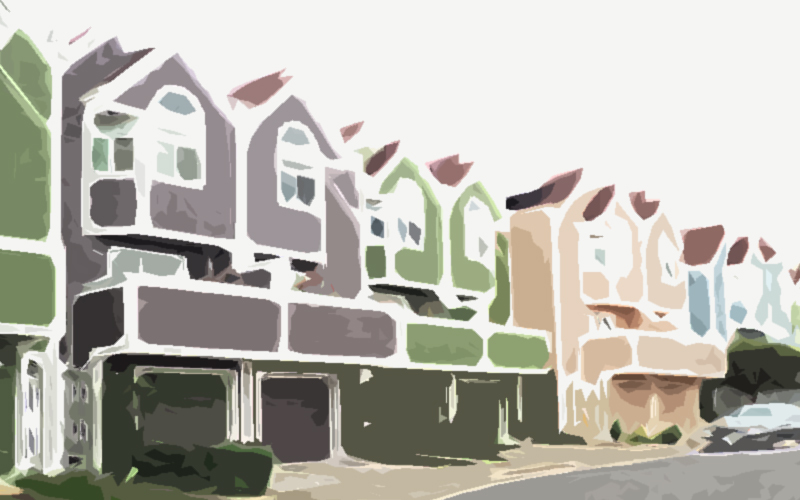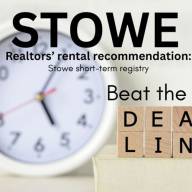Downstreet Housing and Community Development, which serves central Vermont, along with Twin Pines Housing, which serves the Upper Valley of Vermont and New Hampshire, have received a $175,000 grant from the TD Charitable Foundation’s Housing for Everyone program. According to a press release, “The grant will be used to strengthen the resident supportive services that both Downstreet and Twin Pines housing provide its residents, along with recruiting additional resources.”
“One of the primary goals of the Housing for Everyone grant program is to help people in the communities TD serves feel more confident about their future and having a safe, affordable place to call home means families across Vermont have one less thing to worry about,” said Sheryl McQuade, regional president for Northern New England at TD Bank. “Housing is foundational to feeling confident about the future, and we know Downstreet and Twin Pines are trusted community partners with a long history of building affordable housing and providing increasingly needed wraparound services. With the support from the TD Charitable Foundation, these two organizations will be able to help even more individuals and families across Vermont get the help they need so they can feel confident about the future, particularly during these uncertain times.”
According to Downstreet donor relations manager Michelle Kersey, Downstreet provides homes for nearly 900 people in 440 apartments and 82 mobile home lots in Washington, Lamoille and Orange counties, including homes for more than 160 people in 60 apartments at three locations and one mobile home park in Waitsfield and Warren. Downstreet, headquartered in Barre, also provides homes for nearly 100 people in 57 apartments at three locations in Waterbury. It has been in operation since 1987 and was previously called the Central Vermont Community Land Trust.
SASH PROGRAM
The organization “provides the nationally-recognized SASH (Supports and Services at Home program) to older Vermonters and people with disabilities, serving 29 people in the Mad River Valley and 24 people in Waterbury,” Kersey said. “Our Neighborworks HomeOwnership Center provides home ownership education classes, financial coaching and budget counseling; help accessing down payment assistance, low-interest loans, and emergency rental and mortgage assistance programs; and stewards five shared-equity homes in the Mad River Valley and three in Waterbury.”
With the guidance of Twin Pines, which has run a resident services program for more than 10 years, Downstreet will launch a new pilot program for resident services at their locations throughout central Vermont. During the first three months of the grant period, the organization will collect feedback from their residents on what kinds of services and supports they need to keep them safely housed. “We’ll start at the basic level,” Kersey said. “We’ll talk with residents to see what they need and how we can offer support.”
Kersey said that Downstreet’s property managers do already connect residents to some services in the community, but this grant will allow it to have a position dedicated to resident services. Twin Pines has a resident services director, two resident services staff and a SASH coordinator.
“By providing resources we can help people look at their expenses and resources in the community,” Kersey said. “Not everybody knows how to access these kinds of support.” The types of support that may be offered include helping residents access heating assistance programs and health and nutrition programs. Twin Pines, for example, has partnered with the Vermont Food Bank to deliver food to the residents, which has helped provide nutritious food to those who lack transportation to a food bank or community pantry. “They have played a key role in helping to ensure people stay in sustainable housing,” she said. The organization also provides services such as budget counseling.
PARTNERSHIPS
Currently, Downstreet has partnerships with organizations such as Washington County Mental Health, Good Samaritans Haven, the Turning Point Center and Capstone Community Action. The pilot project will enable it to provide additional wrap-around services that meet its residents’ needs at a time when those needs are greater than ever.
“The pandemic has had a huge impact” on low-income residents, Kersey said. She said rates of homelessness have increased significantly. Over the past two years the percentage of residents who had experienced homelessness at some point in their lives went from 17% to 25%. “It’s had a major effect,” particularly for those who work in the service industry, which comprises many of the jobs in the Mad River Valley. She said rising costs of gas and food have hit Downstreet’s residents hard. “When you’re struggling to pay for heat you can’t afford medications or things to keep you healthy.” She also said financial insecurity raises stress levels. She did note that emergency relief funds have become available during the pandemic, but there are barriers for some to access what they need. “Downstreet is helping people navigate those programs,” she said. “Not all residents have access to the internet or a computer.”
Once the funding for the resident services pilot project is exhausted, Kersey said Downstreet hopes to secure long-term funding for the program. It relies on charitable contributions and grants to support its programs.
“It’s going to benefit our communities and our residents in lots of ways,” she said.












